Review & Photography by Nathan Vestal for MPM
There’s something magnetic about seeing a band return to the place that made them. Not just a concert, but the completion of a cycle — the ghosts of practice rooms, the smoke of old clubs, the skyline highlighted by the Capital building that set the stage for their big dream.
When Garbage took the stage at The Sylvee in Madison, it wasn’t just another stop on their tour — it was an exhale decades in the making.
And with the LA-based Starcrawler as the support act, the night was equal parts electricity and affection — a reminder that rebellion doesn’t fade, it just gets wiser.
Starcrawler Lights the Fuse
You could feel the voltage the moment Starcrawler stepped under the lights. No pretense, no easing in — they detonated straight out of the gate. Arrow de Wilde hit the stage like she’d been shot from a cannon, all sinew and snarl, moving with the manic energy of someone halfway between possession and performance art.

She didn’t sing songs so much as embody them — half banshee, half ringmaster. She bent backward into the strobes, hissed into the mic, stomped and stared down the front row with a grin that dared anyone to blink. If punk ever lost its danger, Starcrawler came to reclaim it.
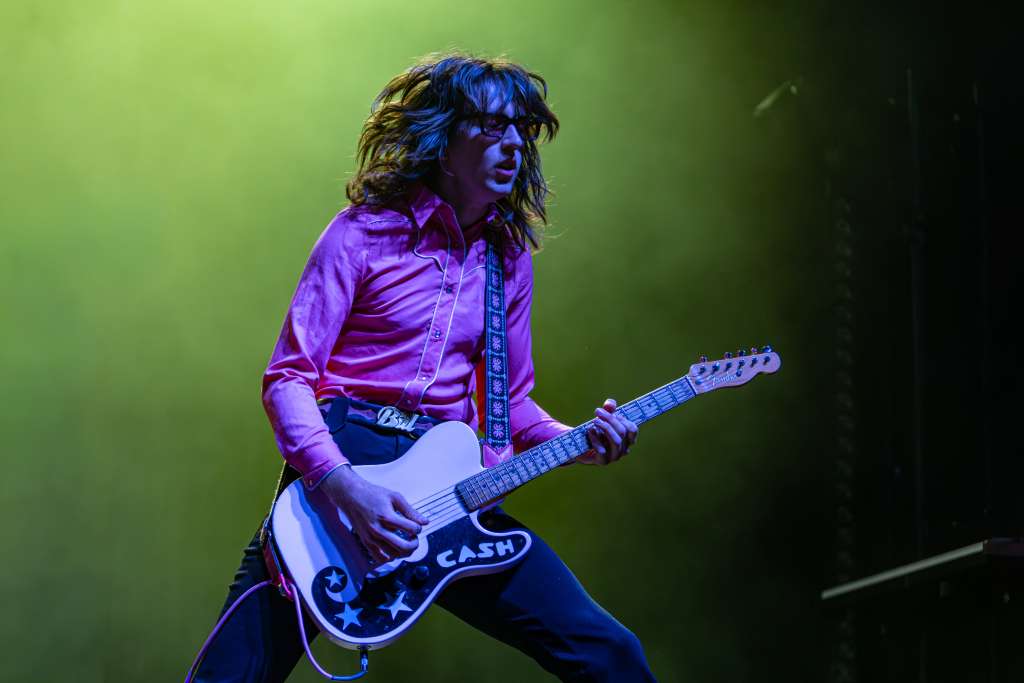
Guitarist Henri Cash ripped riffs that felt like razor blades on chrome — sharp, dirty, and relentless. He didn’t just play — he attacked the instrument, letting feedback shriek and hang in the rafters like warning sirens. Rhythm guitarist Bill Cash, bassist Tim Franco, and drummer Seth Carolina kept the foundation pounding and unpredictable, turning songs like “Roadkill”and“Bet My Brains” into feral anthems that felt one spark away from burning the room down.
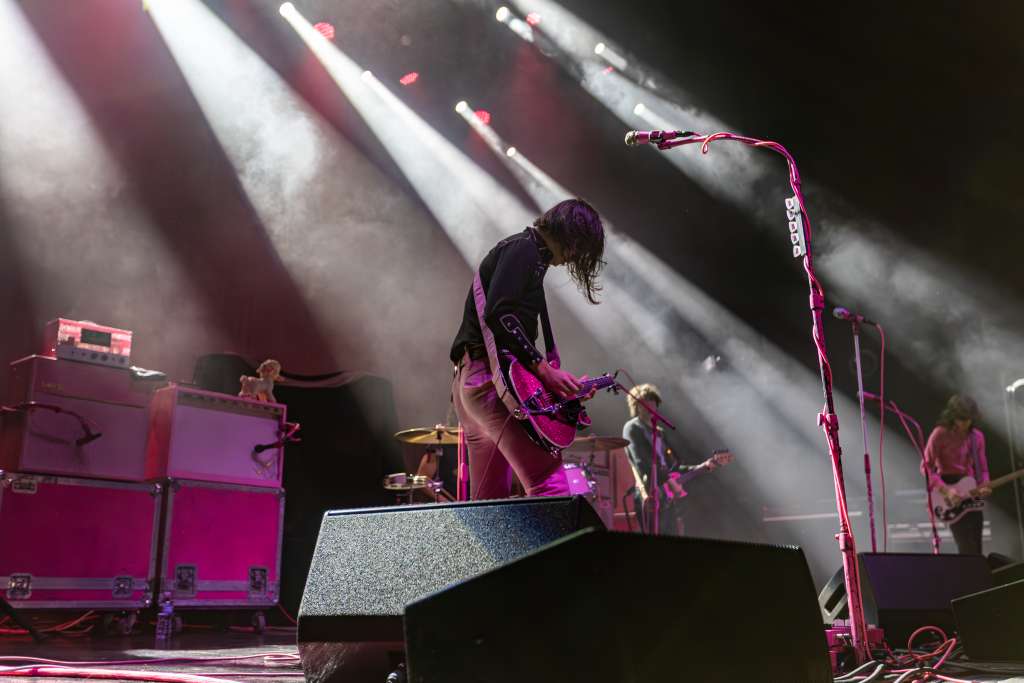
And yet, for all the chaos, there was precision under the grime. Starcrawler have matured without losing their venom — their newer material sounds fuller, meaner, and more deliberate. De Wilde’s voice carried better control, her theatrical chaos balanced with timing that showed craft beneath the carnage.
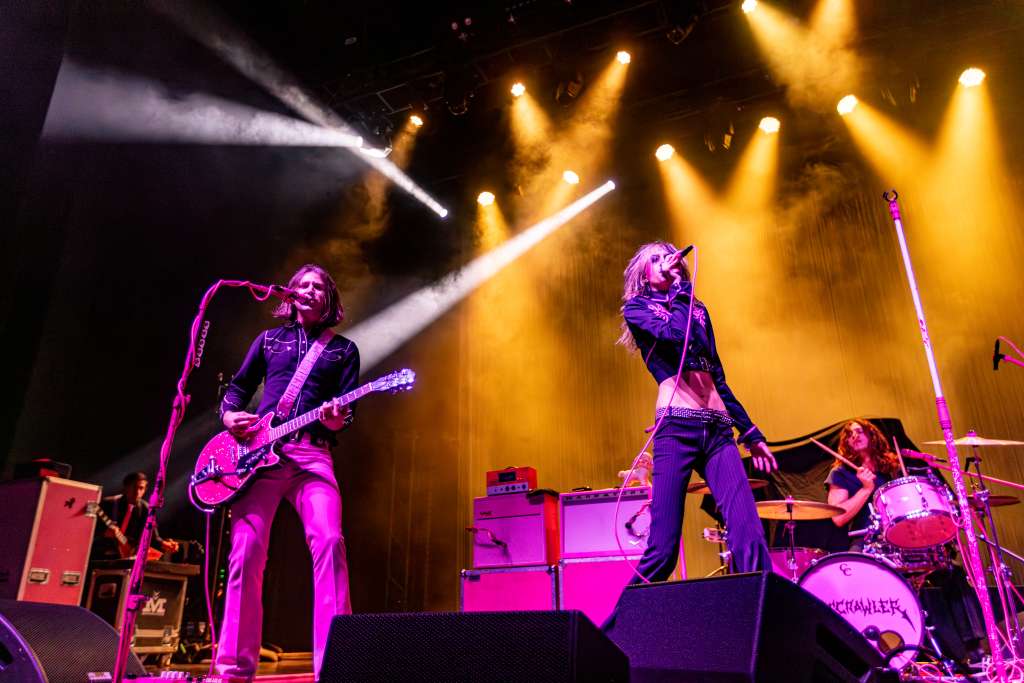
The Sylvee’s sound system gave them room to breathe, and they filled it with volume and sweat. To end the set, lead guitarist Cash worked through the crowd and for a few moments, that clean, modern venue felt like a dive bar in ’77. You could almost smell the beer-soaked carpet and feedback-laced amps of punk’s early rot and glory.
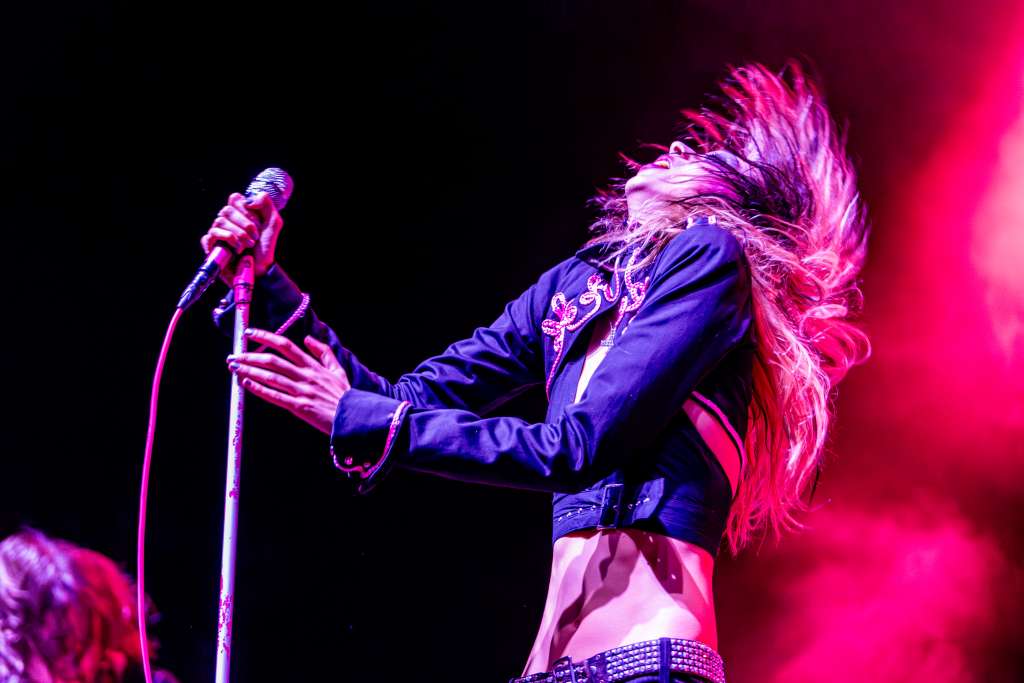
By the time they left the stage, Starcrawler had done more than warm up the room — they’d claimed it. People who’d come only for Garbage were talking about them up until the headliners appeared. That’s the mark of a great opener: not deference, but defiance.
Garbage: Grit, Grace, and a Little Bit of Lightning
When the house lights dimmed and that familiar hum filled the air, Madison roared. You could feel it before a single chord hit — this wasn’t a crowd waiting to be entertained; this was family waiting to have a Spotted Cow® with the kids who have been away at college.
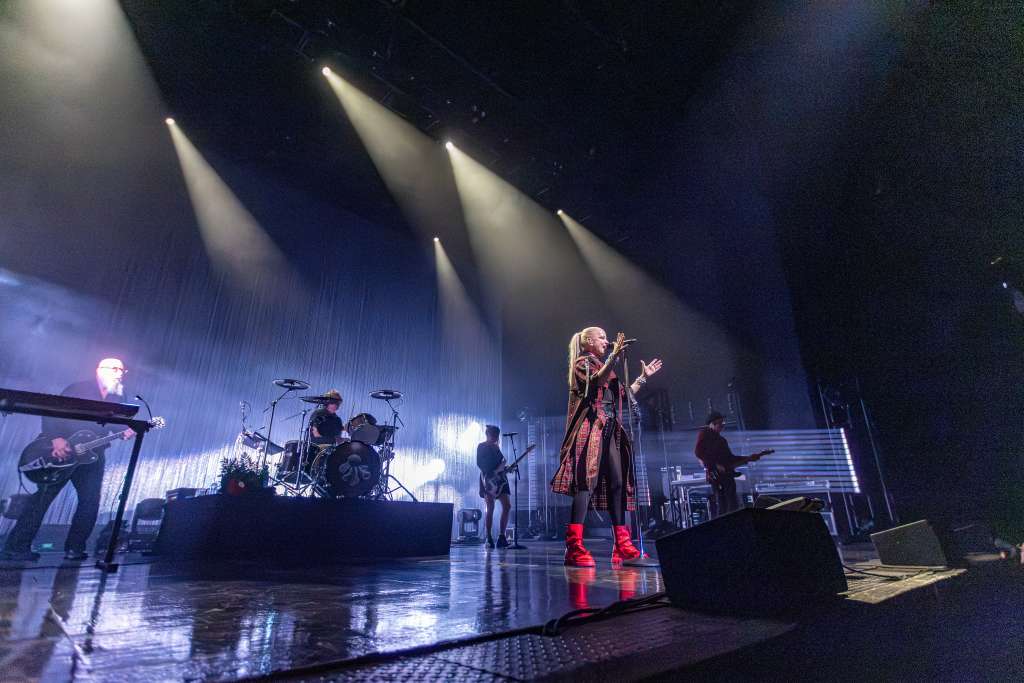
Shirley Manson emerged from the darkness in a blaze of red light—calm, deliberate, powerful. She didn’t need to posture; her presence filled the room simply by being in it, commanding the space and, at times, softening it. The crowd stood transfixed through the first two songs from the band’s latest 2025 release, Let All That We Imagine Be The Light, but the energy shifted to a full-throated singalong as Garbage launched into hits from Version 2.0 like “I Think I’m Paranoid,” and “Vow” from their double-platinum, self-titled 1995 debut.
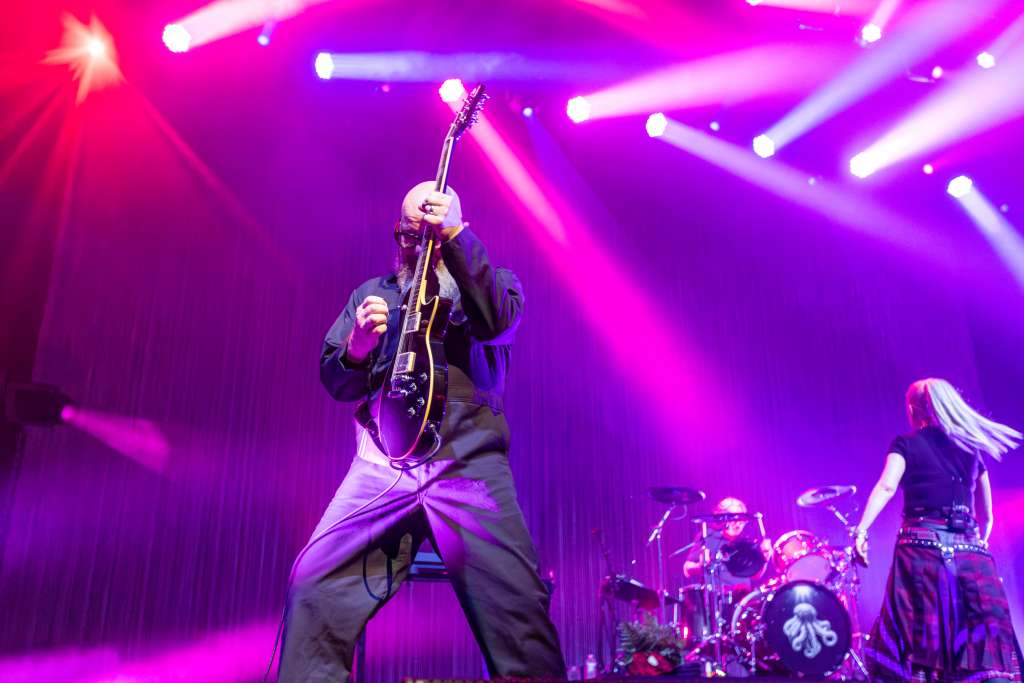
The band — Butch Vig, Steve Marker, and Duke Erikson — played like a machine built from memory and muscle. Vig’s drumming was steady thunder, not flashy but full of intent. Marker and Erikson still trade tones like telepaths — one chasing beauty, the other shadow. The sound was massive, clean, and alive, with The Sylvee’s acoustics amplifying every layer instead of drowning them.
If Manson’s voice has changed with time, it’s only become more deeply human. There’s a lived-in ache to her delivery now — the edge of experience sharpening every sweet note. During “The Trick Is to Keep Breathing”, she added dramatic inhales and exhales and I doubt any audience member could resist breathing along with her. She sang with the kind of control that comes from surviving storms, not avoiding them. On “Hammering In My Head” and “Push It,” she snapped back into full snarl, pacing the stage like a cat that remembers every fight it’s ever won.
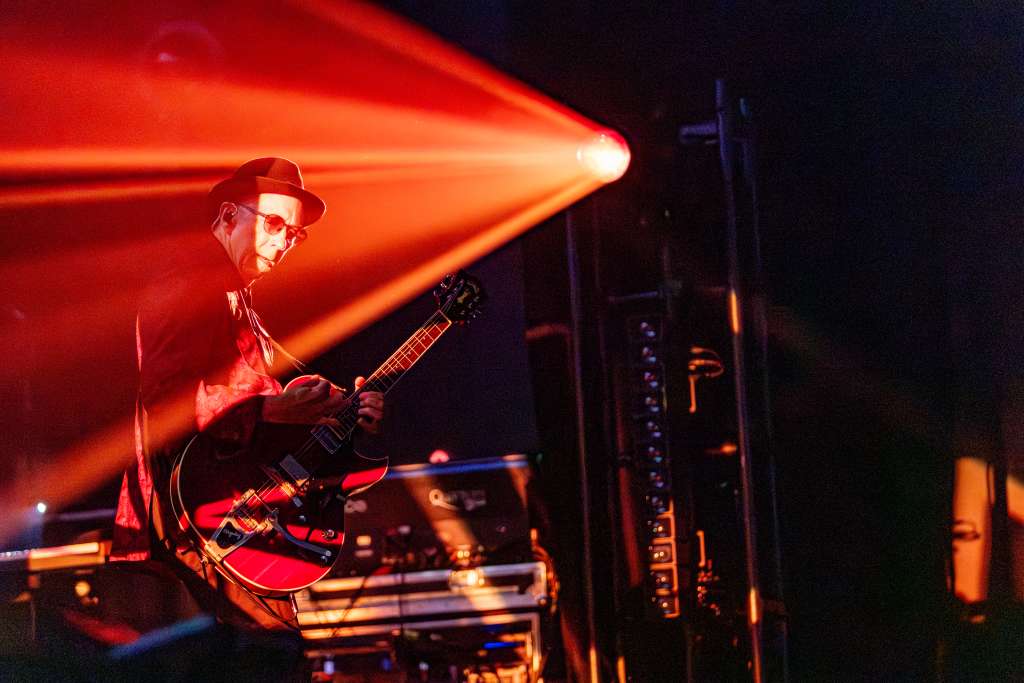
She spoke often—thanking Madison, reminiscing about the early days, and reflecting on what it means to return to where it all began. Her tone shifted easily between wry humor and raw honesty. At one point, she told the crowd, “Every time I’m back here, I remember being a kid who thought this could never happen. And yet, here you all are.” She went on to share the story of her audition for the band and the first song they wrote together: “Queer.” The room fell silent for a moment before erupting as Garbage launched into their first hit—sharp, cinematic, and wrapped in that unmistakable Garbage polish.
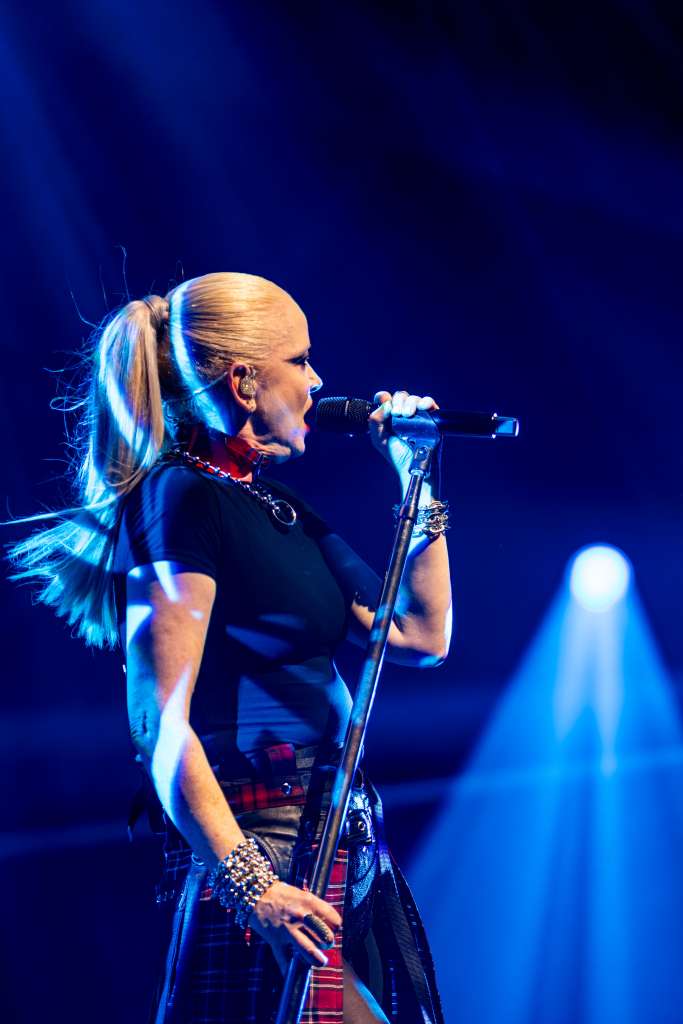
Pride was the heartbeat of the night, not nostalgia. Garbage wove old and new together without apology. The setlist seamlessly blended ’90s chart-toppers with career-spanning cuts from Beautiful Garbage, Bleed Like Me, and 2021’s No Gods No Masters.
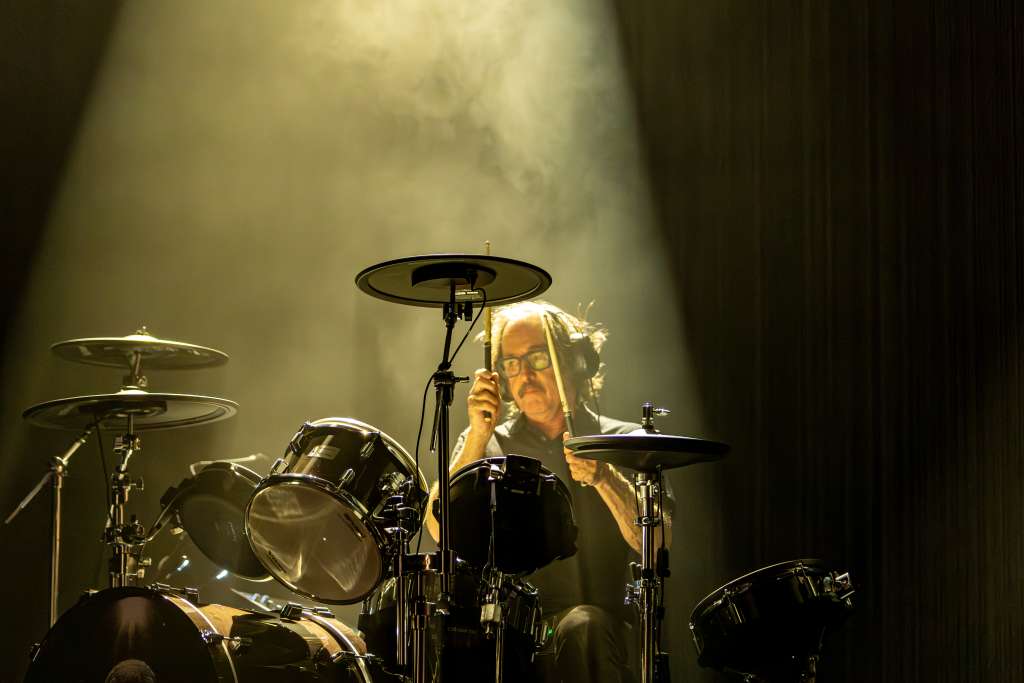
During an interlude, Manson handed the mic to the usually reserved Erikson. He admitted he’d practiced all day, but still grew emotional as he paid tribute to Dave Benton, who had passed away just days earlier on September 27, 2025—only months after sharing the stage with Erikson and Vig at a 50-year reunion show for their Madison-born band, Spooner.
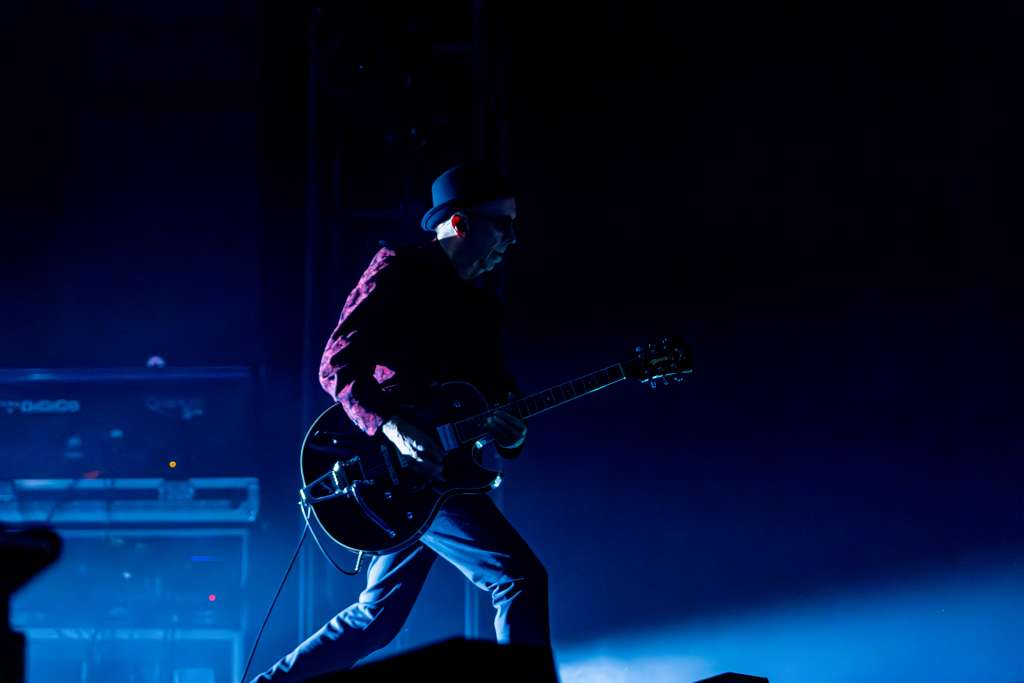
The encore brought “Stupid Girl” and “Only Happy When It Rains” — every voice in The Sylvee lifting the chorus like a hymn to imperfection. For a moment, time folded in on itself: 1995 and 2025 breathing the same air.
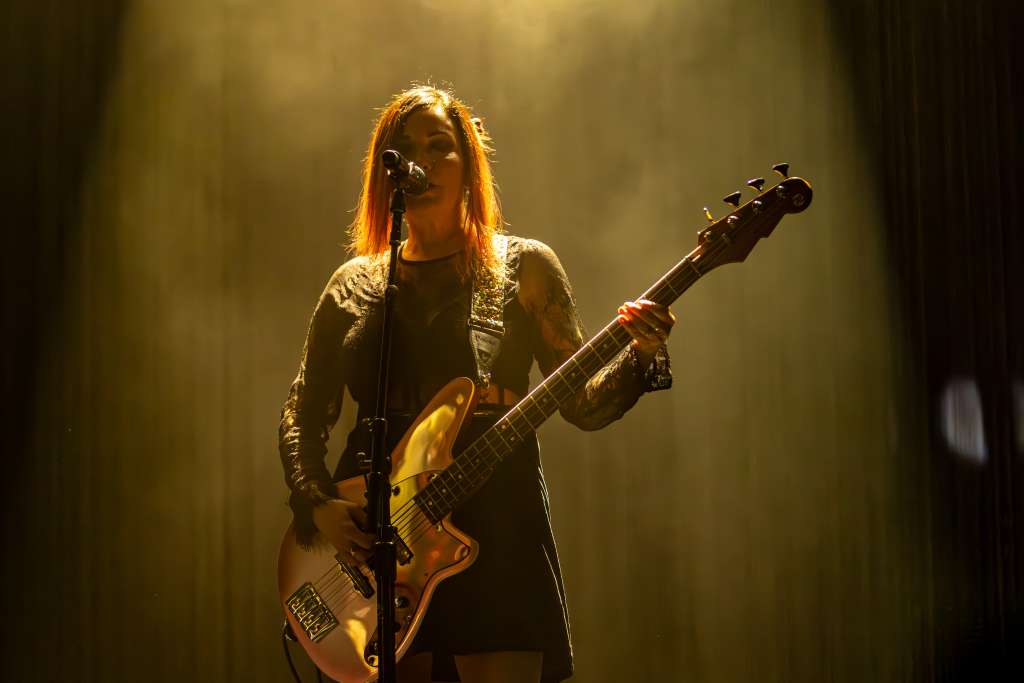
From the crowd, it didn’t feel like watching a legacy act. It felt like watching a band that still had something to say — and said it without compromise. There was sweat, distortion, a few missed cues, and plenty of grit — but that’s where the truth lives. Garbage didn’t chase perfection; they chased connection.
And when the house lights rose, you could see it in the faces around you — people who’d been changed by this band once, finding they could still be moved again.
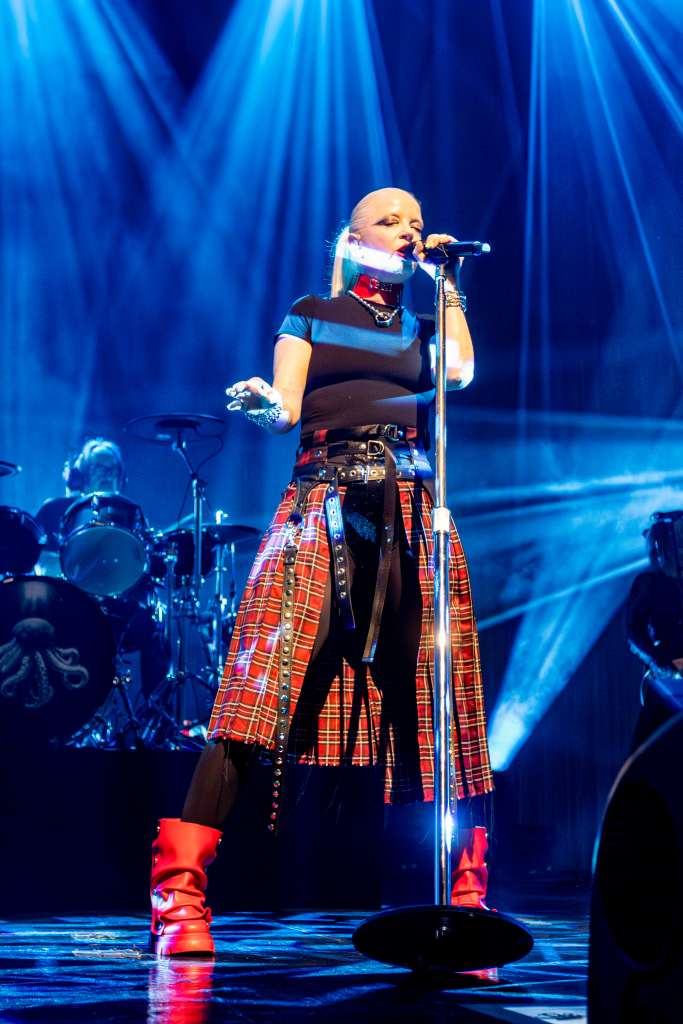
Starcrawler might’ve started the fire, but Garbage turned it into light.
Garbage at The Sylvee wasn’t a nostalgia trip. It was a declaration of survival — the sound of artists still fighting, still evolving, still deeply alive. Madison got more than a concert that night. It got a homecoming with teeth.







